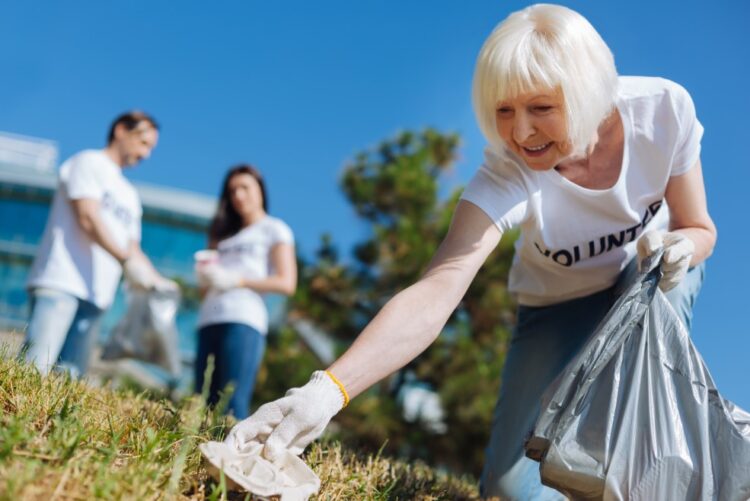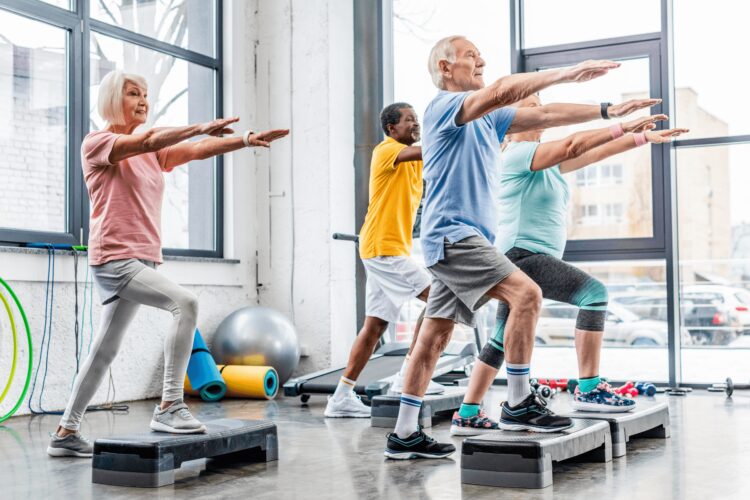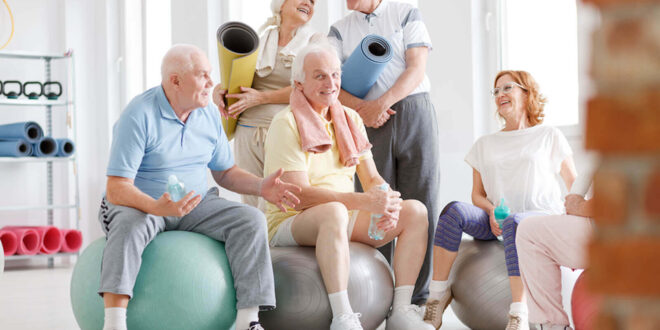After switching to a quieter way of life post-retirement, some retirees may face difficulties maintaining an active lifestyle. Now that they aren’t obligated to go out as often, finding the motivation to stay active can often be a challenge.
To combat this, there are many regular practices that retirement community residents integrate into their daily or weekly routine to stay moving. Below, we’ll consider some ways of staying active that will benefit older ones mentally, physically, and emotionally.
Create an exercise plan
One of the most challenging aspects of figuring out how to maintain an active lifestyle is staying disciplined and motivated to move. Therefore, creating an exercise plan is an excellent way for older persons to set aside a designated weekly time to move their bodies.
An exercise plan can be catered to meet any level of physical capability and can be as simple as scheduling a daily walk outside.
However, if you can do more physically, many communities like Seasons Retirement (found here) offer exercise classes and fitness equipment, including weights and fitness machines. These and other lower-impact exercises are all enjoyable ways to increase your activity level.
Overall, if you select an exercise you enjoy regularly, you’ll be more likely to stick to your scheduled routine.

Find an accountability partner
Keeping active is difficult at any age, but it can be especially challenging for older persons who cannot do the same level of physical activity as they were previously able to do. However, if you ask a friend or family member to join you when engaging in exercise, it can keep you much more motivated.
You’ll not only have someone to talk to throughout but having an established plan with another person will also better ensure that you stick to your scheduled exercise. This companionship will make the activity more enjoyable, as you can spend quality time with your friend or family while staying active.
Embrace outdoor activities
If formal exercise routines and classes aren’t a good motivator for you or your loved one, you can still participate in plenty of outdoor activities to help you stay active.
For instance, going on nature walks is a great way to get steps in while also enjoying the beautiful scenery. If you enjoy plant care, you could help look after a community garden, which is an excellent activity for your body and brain health, as research proves.
You could join a walking group if you prefer to exercise outside and engage in nature walks.
Many communities will already have walking groups established, but if you cannot locate one, you could try starting your own with fellow residents in your retirement community!
Get involved in volunteer activities
You can stay active in many ways that don’t involve rigorous exercises, such as joining volunteer programs.
Many volunteer efforts involve working with kids and young adults, such as day camps, where plenty of walking and physical activity occurs.
There are also many volunteer programs where you can work with animals, like dog walking, that can get you moving around.
Overall, you’ll benefit your physical health simply by moving your body more often than you would while staying home during the day. Joining volunteer programs is a great way to ensure you get out of the house regularly.

Keep your brain active
Another aspect of staying physically active is keeping your mind sharp. As you age, engaging in mental challenges like card games and crossword puzzles will help improve your cognitive ability.
Improved mental ability will help you keep your focus, assisting with performing exercises and movements that require balance, such as lifting light weights.
Overall, maintaining your cognitive focus will help with physical and mental activities, as well as help improve symptoms of serious diseases like dementia.
Get plenty of rest
Getting plenty of rest is crucial to maintaining an active lifestyle for seniors, as getting a full night’s sleep will improve heart health and help older individuals maintain a healthy weight.
Older adults may need more sleep now than younger adults. Seniors over 65 should get 7-8 hours of sleep per night. Therefore, older ones may want to go to bed earlier to ensure they get the right amount of sleep for their body.
By ensuring you’re well rested, your body and mind will benefit, making regular physical activity much more manageable.
Make your health the priority
When individuals decide to lead an active lifestyle, they prioritize their health. As we age, this becomes even more important, as maintaining our health can become a more significant challenge.
In addition to staying physically active, there are other habits and practices older ones can adopt into their day-to-day life to maintain their health.
Avoiding overconsumption of alcohol, staying on top of medications, eating healthy food, and monitoring blood pressure are all critical aspects of looking after your health, all of which can contribute to your energy and physical capabilities.

Conclusion ─ Staying active in a retirement community
There are many different ways in which older persons can maintain a physically active lifestyle once they move to a retirement community. For instance, many retirement homes offer gym areas and exercise classes for different physical capabilities.
There are also many opportunities to enjoy physical activity outside, like walking, working in a community garden, and even joining volunteer efforts such as day camps.
As you or your loved one prepare to start the next phase of life in a retirement community, you can enjoy many pleasurable activities that will help you maintain a healthy, active lifestyle for years.
 Hi Boox Popular Magazine 2024
Hi Boox Popular Magazine 2024



